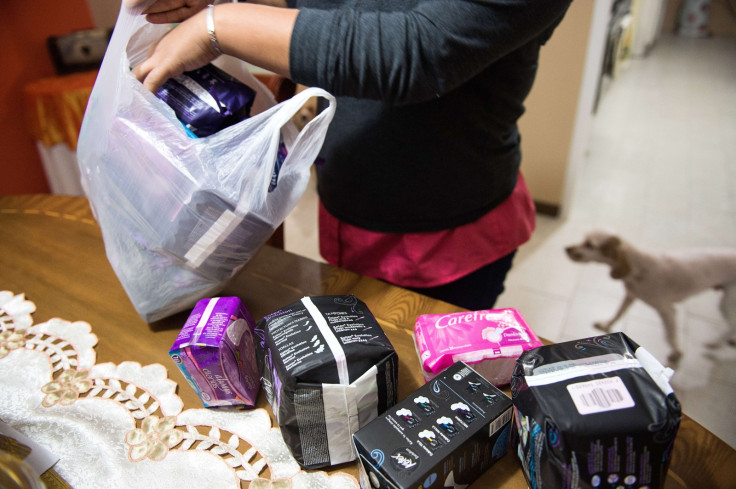Women in India are creating completely biodegradable sanitary pads
Traditional sanitary pads don't break down and mostly end up in landfills or the ocean.

A small-scale revolution in women's menstrual products is happening in Goa, India. It has the potential to cut the ecological footprint of having your period.
There are some forms of eco-friendly sanitary products out there already, from reusable cotton pads to menstrual cups. But there are stunningly few fully biodegradable sanitary pads.
The brands you find on a supermarket shelf in the UK contain layers of plastic, which go straight into landfill or add to plastic pollution in the sea. The only other alternative is to incinerate the pads, adding toxic gases such as dioxins to the atmosphere.
So on top of being an expense with the VAT of a luxury item in the UK, these sanitary towels can make environmentally conscious women feel guilty about the extra plastic waste they have to throw away.
In India, the choice of product is even more restricted for people in rural areas. Four women in Goa are working to change that, making sanitary pads from natural materials, including pine wood paper and cotton.
If all women who currently use sanitary pads switched to the biodegradable kind, it would save about 9,000 tonnes of plastic-based pads being thrown away every month, according to Grist.
The pads, marketed under the name Sakhi, are said to be 100% biodegradable. Unfortunately, so far they still seem to come in plastic packaging.
"We get all our raw material from Tamil Nadu. The main component of it is the pine wood paper. This pad, when buried in mud, degrades within eight days," Jayshree Parwar, who invented the pads, told The Better India.
The team has only sold 1,000 of the pads so far. Parwar resorted to setting up a production unit from her home upon being turned away by other manufacturers, even after offering to install the equipment free of charge.
Parwar and her colleagues are not alone. Other brands such as Saanthi are selling completely biodegradable sanitary pads to Indian women. But it is a tough place to start trying to sell biodegradable menstrual products.
"Society in India still being largely conservative and patriarchal in nature, menstrual hygiene management has still not been planned well and women face issues in disposing sanitary pads in an appropriate manner," said Sumit Singh of the urban development department at the Government of Goa.
Due to the taboos around menstruation, women often don't feel able to approach Parwar. But she is beginning to supply women in her region and nearby villages.
"Many a time women are hesitant to talk about this issue. Also sometimes girls are hesitant to look at these products when I put up a stall at these events," Parwar said. "At that time I try to convince them that it is not something to be shameful about. We all go through this every month and we need to talk about it."
© Copyright IBTimes 2025. All rights reserved.






















